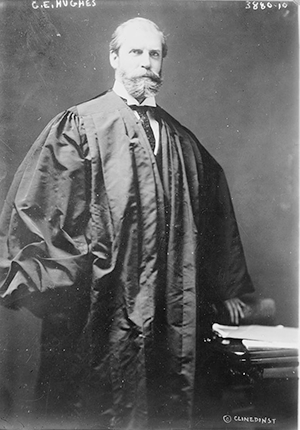Summary
Crowell is one of the most important but least well known cases in this library. It was decided in the Progressive era, when Congress and state legislatures sought to replace old common law rules, often favorable to businesses and defendants, with more progressive statutory schemes. Plaintiffs were also often frustrated by the slow pace of litigation. In Crowell, Congress enacted a workers’ compensation scheme applicable to employment on the navigable waters of the United States (and thus within Congress’s commerce power). The statute empowered an administrative agency—not a judicial court—to determine whether an injury had occurred and the amount of damages. The question in the case was whether allowing an executive branch official (the expert administrative agency) to determine facts upon which the liability of one party to another depends, violates Article III of the Constitution.
The majority held that Congress could empower administrative officers to determine only the fact of injury and the amount of compensation; the dissent wanted the Court to hold that Congress could empower the administrative officers to determine any and all factual questions, including the fact of employment on navigable waters. Neither the majority nor the dissent would have held that all factual questions in such cases must be determined by a judge or jury. To this day, therefore, administrative agencies regularly assess fines and impose penalties on individuals without the participation of a judge or jury.







